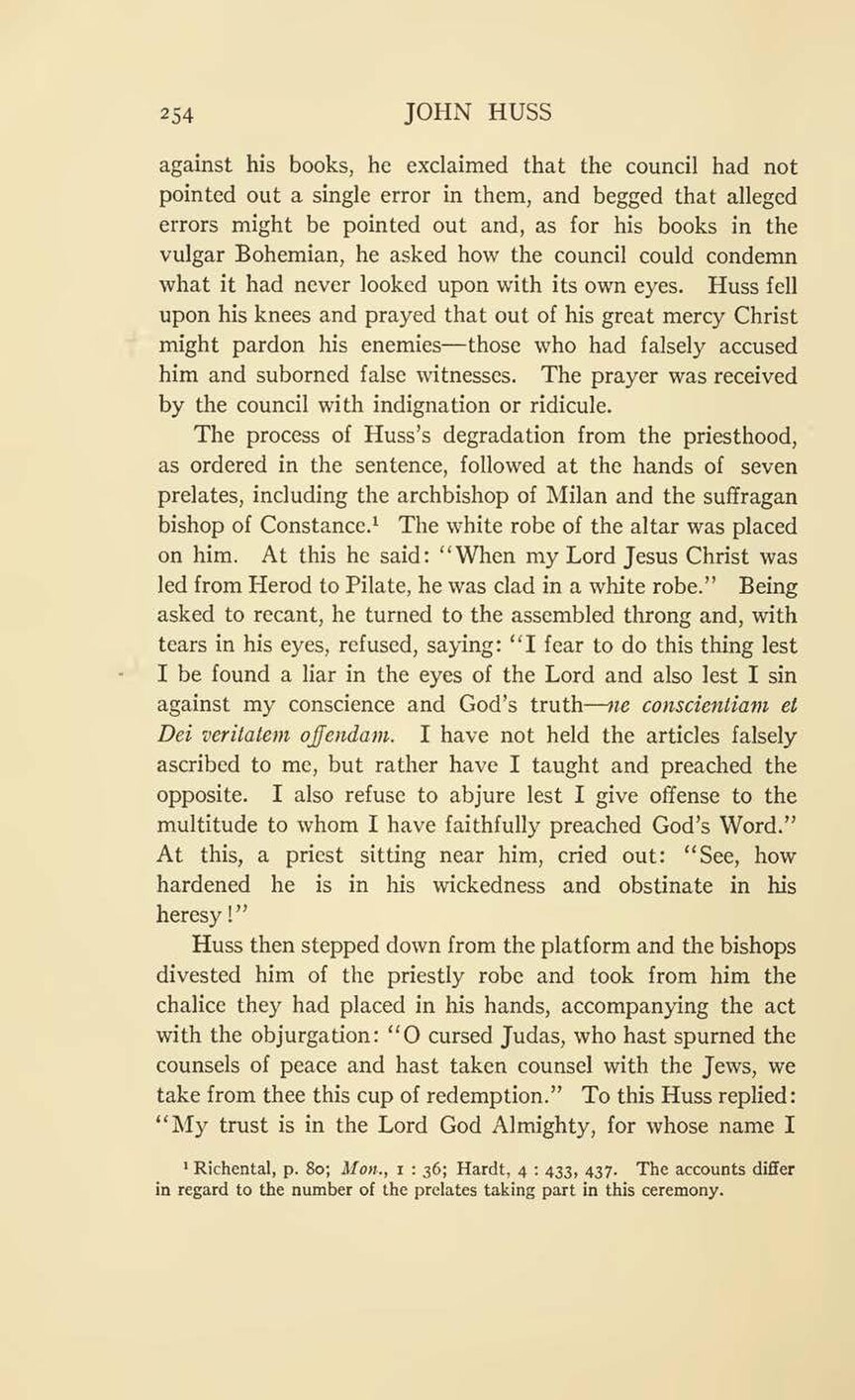against his books, he exclaimed that the council had not pointed out a single error in them, and begged that alleged errors might be pointed out and, as for his books in the vulgar Bohemian, he asked how the council could condemn what it had never looked upon with its own eyes. Huss fell upon his knees and prayed that out of his great mercy Christ might pardon his enemies—those who had falsely accused him and suborned false witnesses. The prayer was received by the council with indignation or ridicule.
The process of Huss’s degradation from the priesthood, as ordered in the sentence, followed at the hands of seven prelates, including the archbishop of Milan and the suffragan bishop of Constance.[1] The white robe of the altar was placed on him. At this he said: “When my Lord Jesus Christ was led from Herod to Pilate, he was clad in a white robe.” Being asked to recant, he turned to the assembled throng and, with tears in his eyes, refused, saying: “I fear to do this thing lest I be found a liar in the eyes of the Lord and also lest I sin against my conscience and God’s truth—ne conscientiam et Dei veritatem offendam. I have not held the articles falsely ascribed to me, but rather have I taught and preached the opposite. I also refuse to abjure lest I give offense to the multitude to whom I have faithfully preached God’s Word.” At this, a priest sitting near him, cried out: “See, how hardened he is in his wickedness and obstinate in his heresy!”
Huss then stepped down from the platform and the bishops divested him of the priestly robe and took from him the chalice they had placed in his hands, accompanying the act with the objurgation: “O cursed Judas, who hast spurned the counsels of peace and hast taken counsel with the Jews, we take from thee this cup of redemption.” To this Huss replied: “My trust is in the Lord God Almighty, for whose name I
- ↑ Richental, p. 80; Mon., 1: 36; Hardt, 4: 433, 437. The accounts differ in regard to the number of the prelates taking part in this ceremony.
